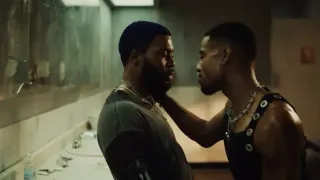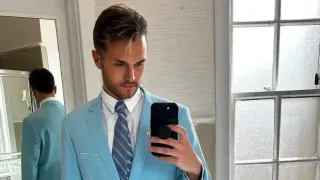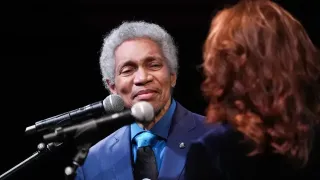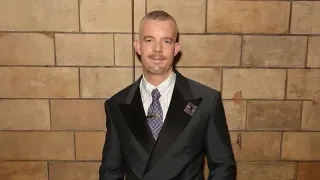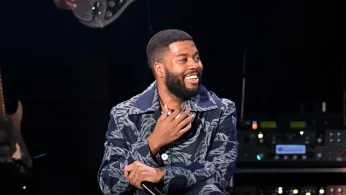
Oct 10
Khalid Reflects on Being Outed: “So Nasty” But Ultimately a “Blessing in Disguise”
READ TIME: 3 MIN.
In November 2024, Khalid—best known for hits like “Location” and “Young Dumb & Broke”—became the subject of intense online speculation when an ex-partner publicly shared details about their relationship, including the singer’s sexual orientation, in a series of social media posts. The posts, which also included allegations about their private life, quickly went viral, thrusting Khalid’s personal life into the spotlight in a way he had not chosen for himself.
At the time, Khalid responded publicly on X (formerly Twitter), writing: “I got outted and the world still continues to turn. Let’s get this straight (lmao) I am not ashamed of my sexuality! In reality it ain’t nobodies business! But I am okay with me, love yall”. While the statement was characteristically laid-back, in recent interviews, Khalid has shared a more nuanced reflection on the experience.
“I was caught off guard. I think what’s so nasty about it all is that my own story got stripped away from me,” Khalid told People magazine in a candid interview. He described the moment as a painful violation of privacy, echoing the experiences of many LGBTQ+ people who have had their identities disclosed without consent—a phenomenon that remains a significant concern in queer communities.
Despite the initial shock and discomfort, Khalid now views the incident as a “blessing in disguise,” a turning point that forced him to confront his identity head-on. “I decided I’m just going to choose to love who I am unconditionally because it’s all I got on this earth,” he said. This shift in perspective, he explained, has allowed him to live more fearlessly and authentically, both as a person and as an artist.
The fallout from being outed became creative fuel for Khalid’s fourth studio album, “After the Sun Goes Down,” set for release on October 10, 2025. Khalid has described the project as a departure from his earlier pop-R&B hybrid sound, embracing a rawer, more vulnerable aesthetic that reflects his journey toward self-acceptance. “This album wouldn’t have come to be if I wasn’t outed,” he told People.
“My friends listen to the new music and are like, ‘Khalid, who is this guy? What is this side of you?’ It’s vulnerability, in a sense; I’m embracing my sexuality—relentlessly, fearlessly,” he said. The album, he explained, is both a celebration of his queerness and an ode to the pop icons who inspired him as a child, such as Britney Spears and Rihanna.
Khalid’s artistic evolution is also evident in his public persona. In a Billboard cover story, he spoke about wanting to “arrive in my complete and total essence of myself, not only as a person, but as an artist,” signaling a new chapter of maturity and authenticity. He has expressed a desire to be an inspiration to young, queer boys, acknowledging the importance of visibility and representation in the music industry.
Khalid’s experience underscores a broader issue within LGBTQ+ communities: the harm caused by involuntary outing. For many queer people, coming out is a deeply personal process, and having that choice taken away can lead to feelings of violation, anxiety, and loss of control. Advocacy organizations have long emphasized that everyone has the right to disclose their sexual orientation or gender identity on their own terms.
At the same time, Khalid’s story reflects a resilience that resonates with many LGBTQ+ individuals who, despite adversity, find empowerment in living openly. His ability to channel a painful experience into creative growth and public advocacy is a testament to the strength of queer artists in the spotlight. Khalid’s journey also highlights the complex relationship between public figures and privacy in the age of social media, where personal boundaries are increasingly difficult to maintain.
As Khalid prepares to release “After the Sun Goes Down,” he is embracing his role as a visible queer artist in mainstream music. His story is a reminder of the ongoing challenges faced by LGBTQ+ people in the public eye, but also of the potential for growth, healing, and celebration that can follow even the most difficult moments.
Khalid’s message to his fans—and to anyone navigating similar experiences—is clear: “I decided I’m just going to choose to love who I am unconditionally because it’s all I got on this earth”. In doing so, he joins a lineage of artists who have turned personal trials into public triumphs, offering hope and solidarity to LGBTQ+ communities worldwide.
